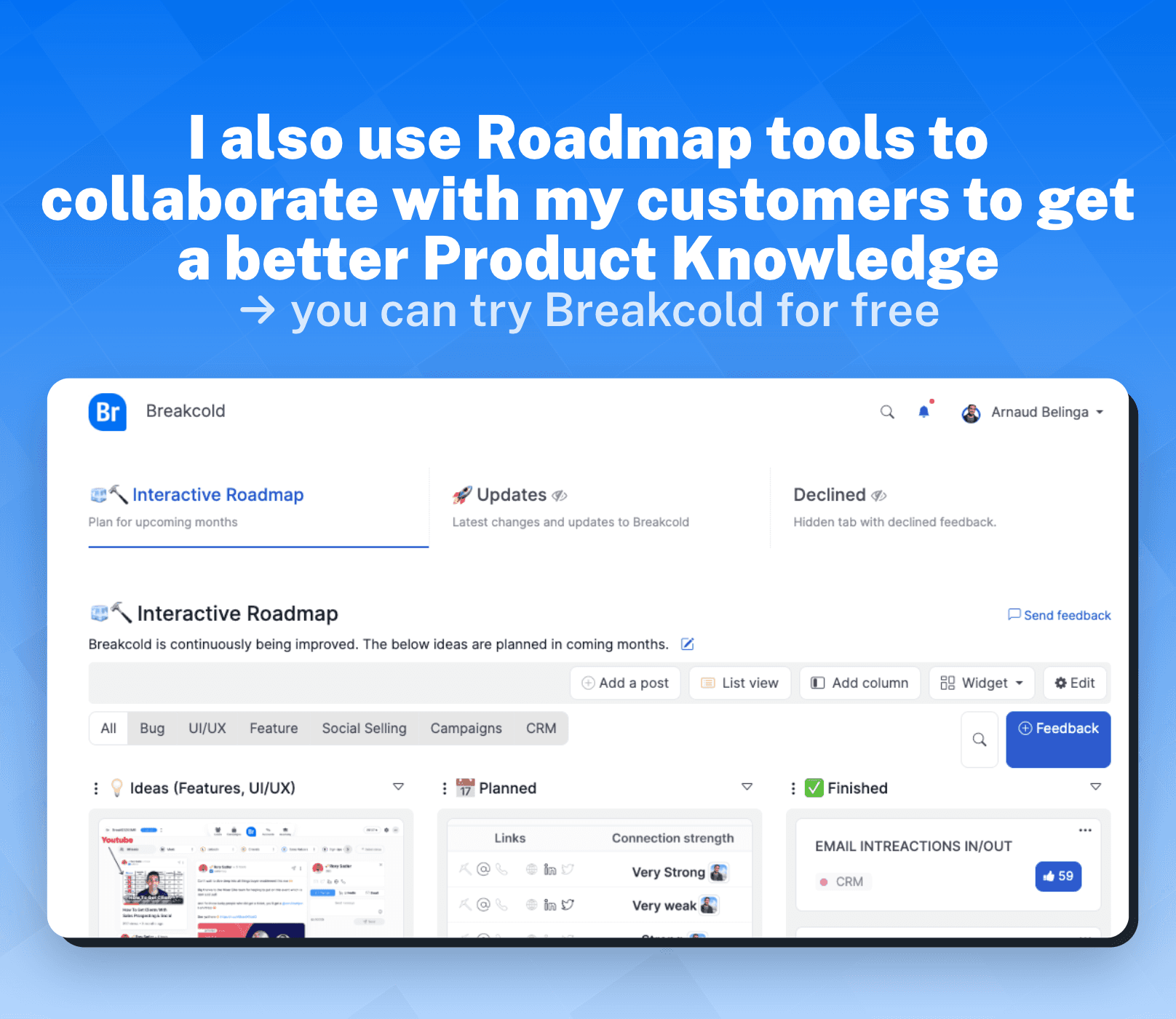
What is Product Knowledge? (Explained With Examples)
Product knowledge refers to a deep understanding and familiarity with a company's products or services. It entails being knowledgeable about the features, specifications, benefits, and applications of the products. Having a strong foundation of product knowledge is crucial for salespeople, customer service representatives, and anyone involved in the promotion and selling of goods or services. In this article, we will explore the definition of product knowledge, its advantages and disadvantages, and provide examples from different contexts to illustrate its significance and practical applications.
1°) What is Product Knowledge?

1.1 - Definition of Product Knowledge
Product knowledge can be defined as a comprehensive understanding of the products or services offered by a company. It involves knowing the various features and characteristics of the product, as well as the benefits it offers to the customers. This knowledge goes beyond memorizing basic facts and extends to understanding how the product functions, how it compares to competitors, and how it can meet the specific needs of the target market.
Having a deep understanding of product knowledge is essential for salespeople to effectively communicate the value of a product to potential customers. It allows them to confidently address customer inquiries, provide accurate information, and make persuasive sales pitches. By possessing a thorough grasp of the product, salespeople can build trust and credibility with customers, increasing the likelihood of successful sales.

1.2 - Advantages of Product Knowledge
Acquiring and maintaining a high level of product knowledge offers numerous advantages for individuals and organizations. First and foremost, it instills confidence in salespeople, enabling them to present the product with conviction and persuasiveness. When customers perceive the salesperson as knowledgeable and trustworthy, they are more likely to trust the product's claims and make a purchase.
Furthermore, product knowledge allows salespeople to tailor their pitch to meet the unique needs of each customer. By understanding the product's features and benefits in depth, they can effectively highlight the aspects that are most relevant and appealing to the customer. This personalization creates a stronger connection between the customer and the product, increasing the likelihood of a successful sale.

Additionally, product knowledge enables salespeople to handle objections and answer questions with ease. Customer inquiries can range from technical specifications to pricing details. With a thorough understanding of the product, salespeople are equipped to address any concerns and provide accurate and helpful information.
Moreover, product knowledge empowers salespeople to anticipate customer needs and offer suitable recommendations. By understanding the product's capabilities and limitations, salespeople can suggest complementary products or services that enhance the customer's overall experience. This proactive approach not only increases sales but also fosters customer satisfaction and loyalty.
1.3 - Disadvantages of Product Knowledge
While product knowledge is undeniably beneficial, there can be potential drawbacks if not managed properly. One potential pitfall is overwhelming the customer with too much information. Salespeople may be tempted to unload every detail about the product, leaving the customer confused and disengaged. It is important to strike a balance between providing valuable information and avoiding information overload.

Another disadvantage of product knowledge is the potential for complacency. Salespeople who are highly knowledgeable about the product may become complacent and rely solely on their knowledge, neglecting other aspects of the sales process. It is essential to continually develop other sales skills, such as active listening and empathy, to complement product knowledge and create a well-rounded sales approach.
Furthermore, excessive reliance on product knowledge alone may lead to a lack of adaptability. Salespeople must be able to adapt their sales approach to different customers and situations. While product knowledge is crucial, it should be combined with the ability to understand and address the unique needs and preferences of each customer.
Moreover, having extensive product knowledge can sometimes lead to a bias towards the product. Salespeople may become overly focused on promoting the features and benefits of the product, potentially overlooking other viable solutions that may better suit the customer's needs. It is important to maintain an open mind and consider alternative options to ensure the best possible outcome for the customer.
2°) Examples of Product Knowledge
2.1 - Example in a Startup Context
Imagine a software startup that has developed a cutting-edge project management tool. The sales team needs to possess in-depth product knowledge to effectively position and sell the software to potential customers. They need to understand the software's features, such as task management, collaboration tools, and reporting capabilities, and how these features can benefit different industries and businesses of various sizes.
Furthermore, the sales team should have a solid grasp of how the software compares to competitors, what sets it apart, and the value it brings to the customers. Armed with this knowledge, they can articulate the unique selling points and engage in meaningful discussions with potential clients, effectively demonstrating how the software can streamline their project management processes and boost their productivity.
2.2 - Example in a Consulting Context
In the consulting industry, consultants need a deep understanding of the services they provide to deliver effective solutions to their clients. Let's say a consulting firm specializes in financial planning for small businesses. The consultants must possess extensive product knowledge about the various financial products and services available, including retirement plans, insurance options, and investment strategies.
By having a thorough understanding of these financial products and their potential benefits, consultants can tailor their recommendations and advice to meet the specific needs and goals of each small business client. They can explain the differences between different retirement plans, highlight the advantages of certain insurance options, and guide clients towards investment strategies that align with their risk tolerance and desired outcomes.
2.3 - Example in a Digital Marketing Agency Context
In the fast-paced digital marketing industry, a digital marketing agency must stay updated on the latest digital tools and platforms. Let's consider a digital marketing agency specializing in social media marketing. The team needs to have a deep understanding of various social media platforms, their algorithms, advertising options, and targeting capabilities.
With product knowledge in this context, the agency can confidently advise clients on the most effective social media platforms for their target audience, craft engaging ad copy, and leverage advanced targeting options to maximize the return on investment. Being well-versed in industry trends and platform-specific features allows the agency to stay one step ahead and deliver successful social media campaigns for their clients.
2.4 - Example with Analogies
To further illustrate the importance of product knowledge, let's explore an example using analogies. Imagine two car salespeople, one with comprehensive product knowledge and one without. The knowledgeable salesperson can effortlessly highlight the fuel efficiency, safety features, and advanced technology of the car, drawing comparisons to other similar models to showcase its superiority.
On the other hand, the salesperson lacking product knowledge may struggle to answer customer questions, provide convincing arguments, and effectively demonstrate the unique selling points of the car. Ultimately, the knowledgeable salesperson is more likely to build trust with the customer and close the sale successfully.
In conclusion, product knowledge is a crucial asset for individuals and organizations involved in promoting and selling products or services. It empowers salespeople to present products confidently, personalize their approach to customers, address objections, and ultimately drive successful sales. However, it is essential to avoid overwhelming customers with excessive information and ensure a well-rounded sales approach that incorporates other skills. Examples from different contexts further emphasize the significance of product knowledge and its practical applications.











































































































































































































